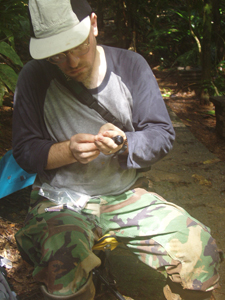Research
Research Interests
- Population-level genetic variation in threatened species and species of management concern
- Historical genetic variation (using museum DNA)
- Relationships between genetic variation, disease, and fitness in individuals
- Genetic aspects of behavioral ecology (inbreeding avoidance, extra-pair paternity)
Current Research
Genetic Structure of New Zealand Fernbirds
- Funding: LSU AgCenter
- Collaborators: Bruce Robertson (University of Otago), Colin O'Donnell (NZ Department of Conservation)
Fernbirds (Bowdleria punctata) are a species endemic to New Zealand frequently found in wetland areas. There are currently five described subspecies, several island populations, and considerable habitat loss and fragmentation. As such, there is considerable potential for genetic structure as a consequence of long-term reproductive isolation as well as more recent habitat fragmentation. I am collecting blood samples from the five subspecies as well as populations in the Te Anau Basin to examine whether subspecific designations have a genetic basis and whether fine-scale population differentiation exists as a consequence of habitat loss and isolation.
Habitat use by urban Barred Owls
- Funding: LSU AgCenter
- Collaborators: Vitek Jirinec, Ashley Long, Melanie Colon, Tyler Williams, Alessandra Bresnan, Anna Perez-Umphrey, Phil Stouffer
The purpose of this study is to examine habitat use in Barred Owls across a range of habitat fragment sizes in the Baton Rouge urban area. If we can understand how top predators persist in increasingly fragmented habitat, then we can protect those landscape elements upon which they and their prey depend, and ultimately, maintain a healthy ecosystem. We will examine habitat use by attaching a small GPS device that logs geographic locations and activity. We expect that owls in small forest fragments will have larger home ranges and will forage in areas outside of the forest fragment whereas owls in large forest fragments will have smaller home ranges and will remain inside forested areas without venturing into more urbanized areas adjacent to the forest fragment.
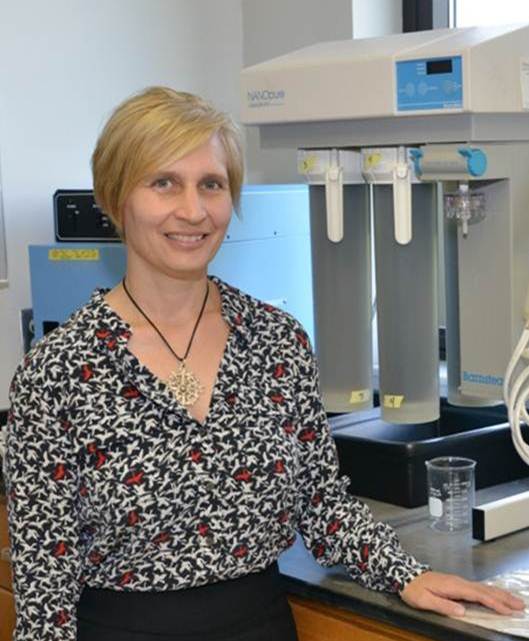
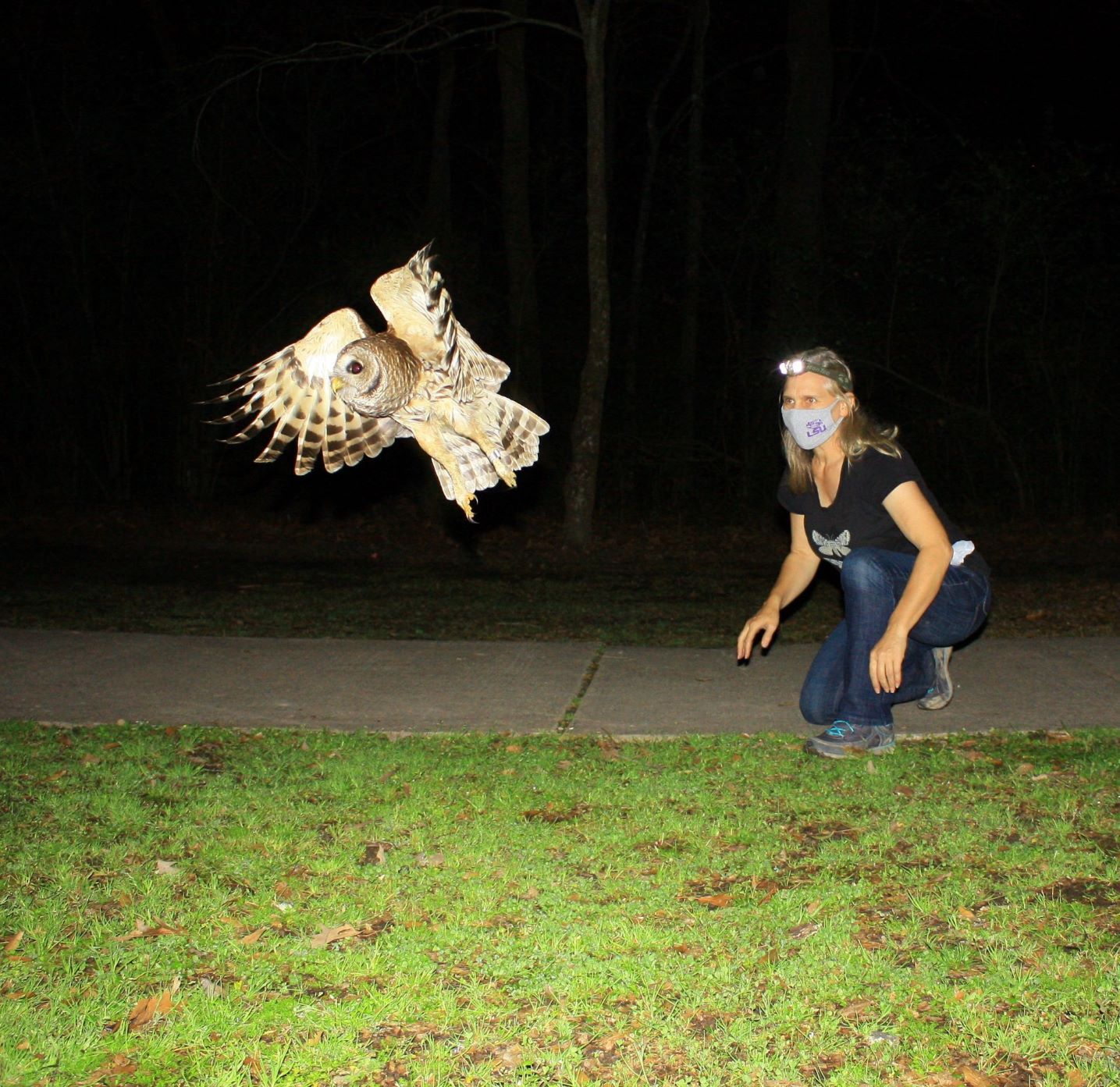
Graduate Student Research
Conservation genomics of captive tigers in the US
- Alessandra Bresnan, PhD student (August 2018 – present)
- Funding: LSU and LSU ACRES
- Collaborators: Leslie Lyons (University of Missouri), Asako Navarro (San Diego Zoo), Bill Murphy (Texas A&M), and Brian Davis (Texas A&M)
Tigers in the wild are highly endangered as a consequence of habitat loss and persecution. Zoos maintain breeding populations that can be used as founders should wild populations go extinct, and they manage breeding carefully to maintain genetic variation for long-term resiliency. Alessandra is using conservation genomics to refine pedigrees of captive tigers managed by zoos to help inform breeding plans. She is also examining the extent of hybridization in generic tigers held privately in the US to understand how uncontrolled breeding affects inbreeding and admixture among subspecies.
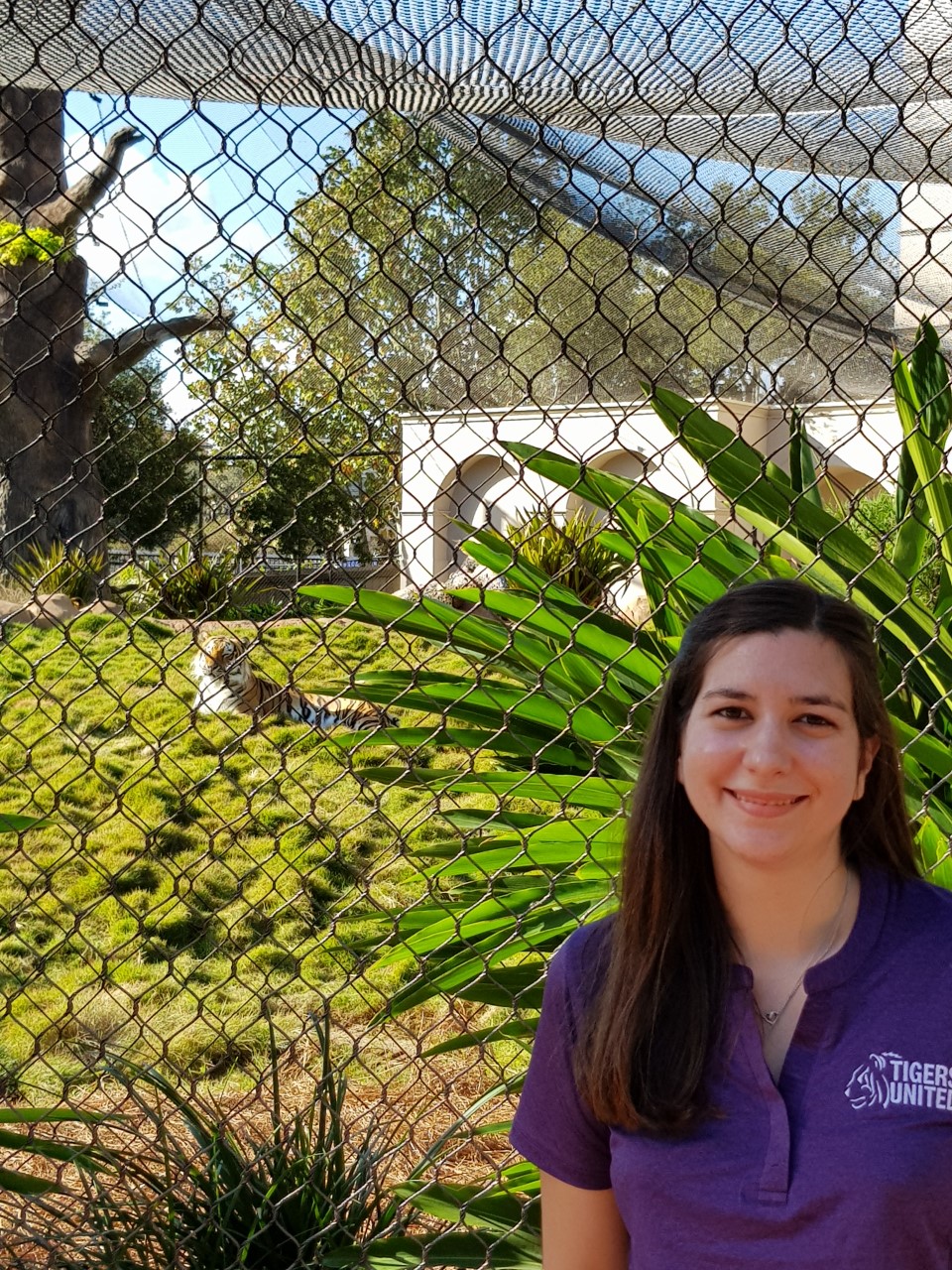
Diet of Common Nighthawks using DNA metabarcoding
- Eliza Stein, M.Sc. student (August 2020 - present)
- Funding: Lucius Gilbert Assistantship to Eliza Stein
- Collaborators: Kristina Cockle
Common Nighthawks (Chordeiles minor) are aerial insectivores that feed on flying insects. Their recent decline (over 50% in the last fifty years) may be due to prey shortages caused by declining insect populations in key habitats. No data exist concerning their preferred diet items over the annual cycle or how forestry management may affect their diet. Eliza aims to examine how diet and prey selection vary between the breeding and wintering season by identifying prey items from birds (via DNA metabarcoding of fecal samples) in Florida (breeding) and Argentina (winter). This will allow her to identify important aspects of diet in two key areas of the birds’ annual cycle. She also aims to examine how nighthawk prey availability varies according to forest management, specifically, the effect of the prescribed fire interval in Florida longleaf forest where the birds breed.
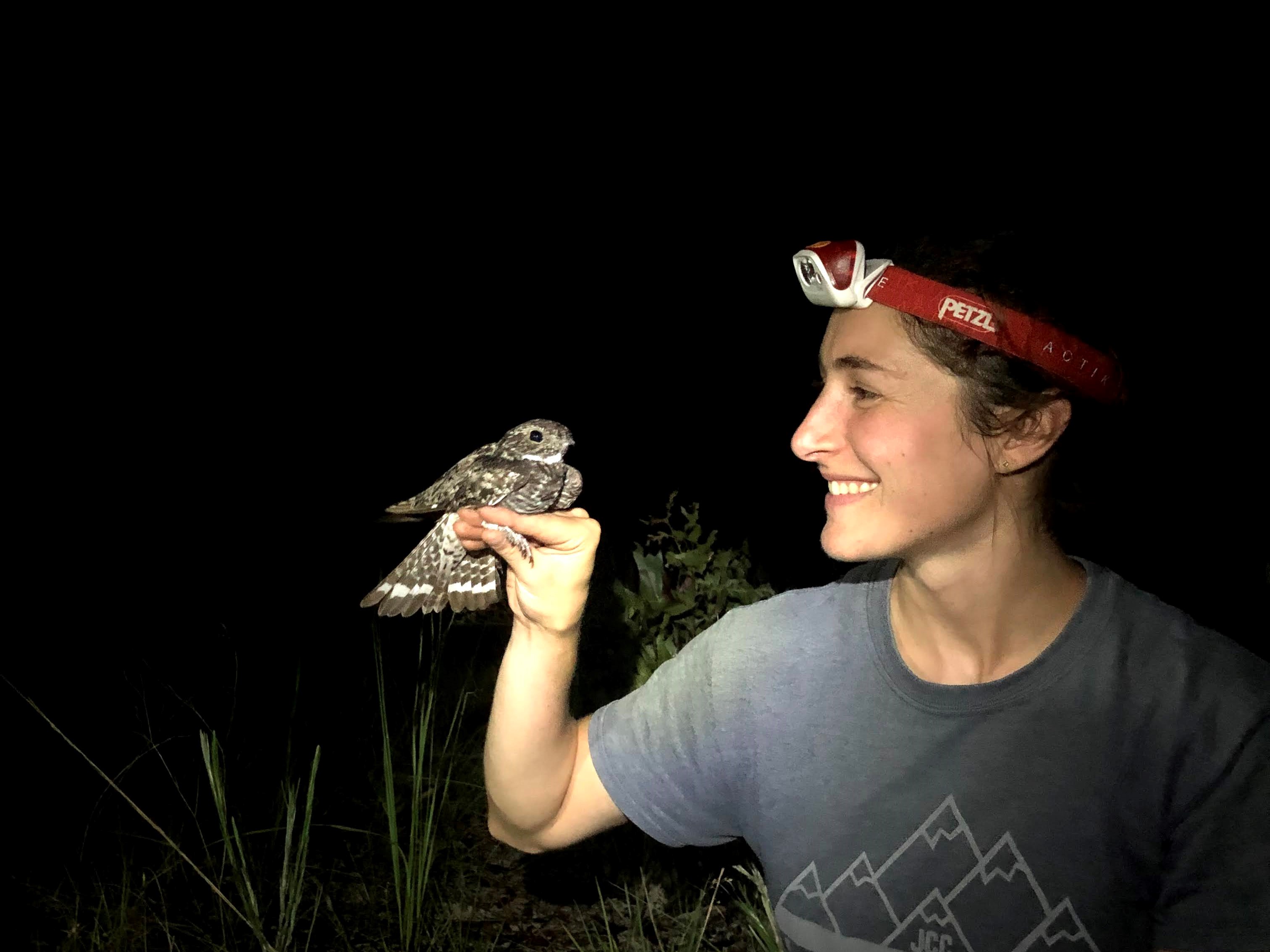
Former PhD Students
Anna Perez-Umphrey (January 2016 – December 2021)
Thesis: Long-term effects of the Deepwater Horizon Oil spill on two terrestrial vertebrate species and the immunogenetics of a hantavirus host
Postdoctoral Associate (Dr. Dana Hawley's lab)
Department of Biological Sciences, Virginia Tech
Blacksburg, VA
aperezumphrey at gmail.com
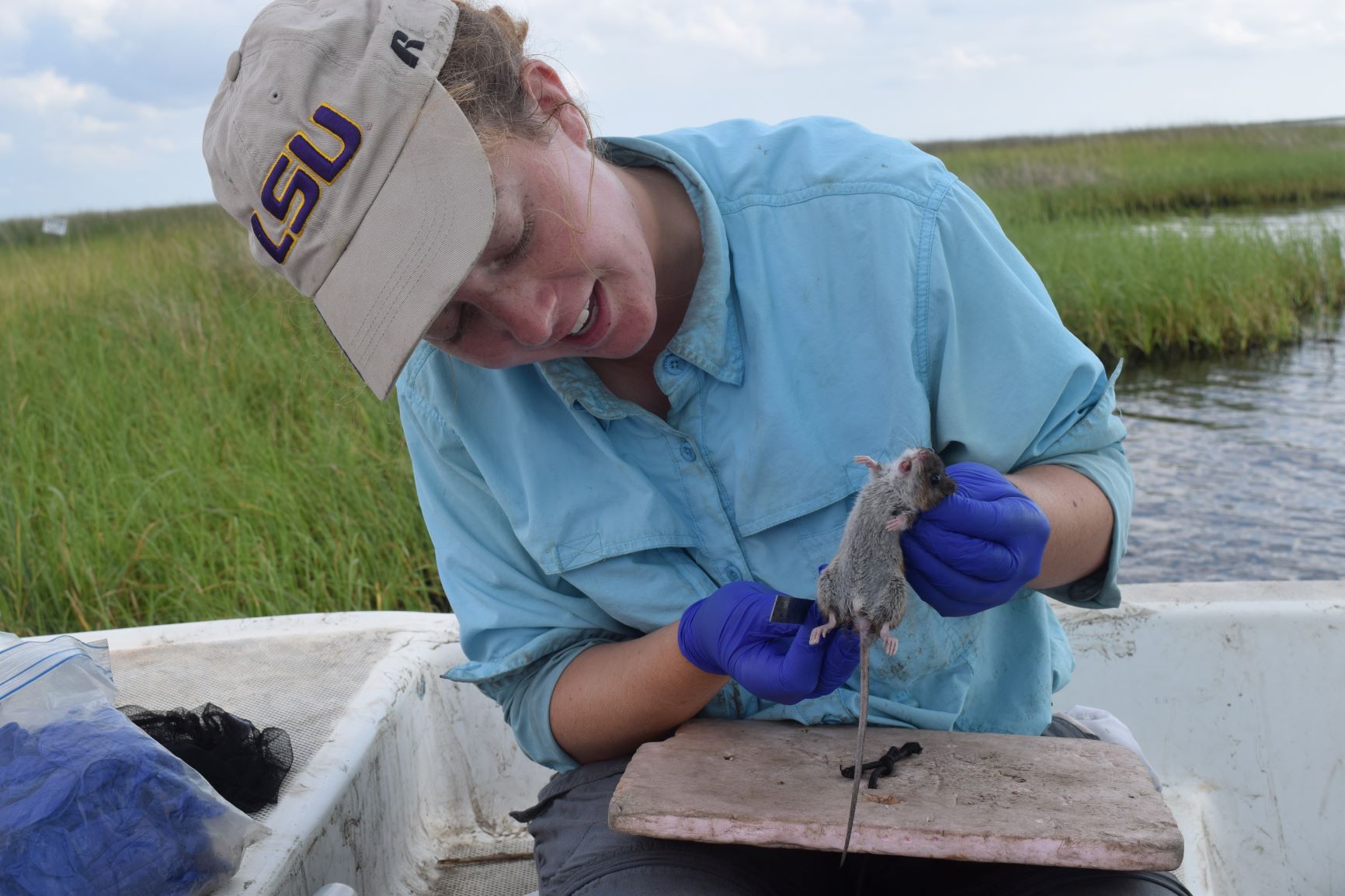
Amie Settlecowski (August 2015 - December 2021)
Thesis: Population structure in two imperiled sparrows with differing vagility
Postdoctoral Associate (Dr. Ben Mark's lab)
Field Museum of Natural History
asettlecowski at fieldmuseum.org
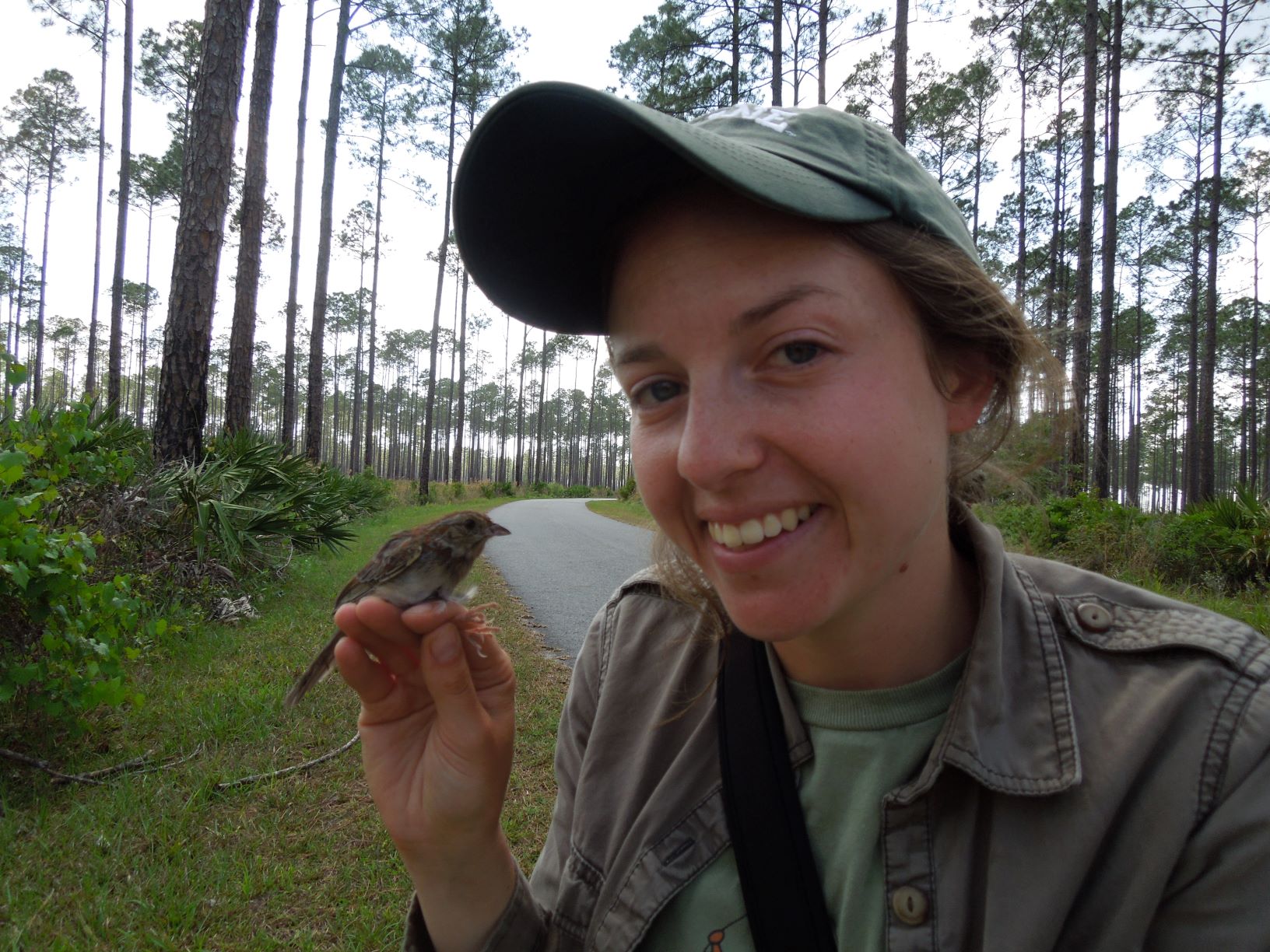
Dr. Kelcee Smith (August 2014 - August 2021)
Thesis: Leveraging multiple data sources: how catch data, metadata, and genetic samples can aid the recovery of endangered smalltooth sawfish (Pristis pectinata)
Chum Salmon Reintroduction Coordinator
Oregon Department of Fish and Wildlife
Clackamas, OR
Kelcee.L.Smith at odfw.oregon.gov
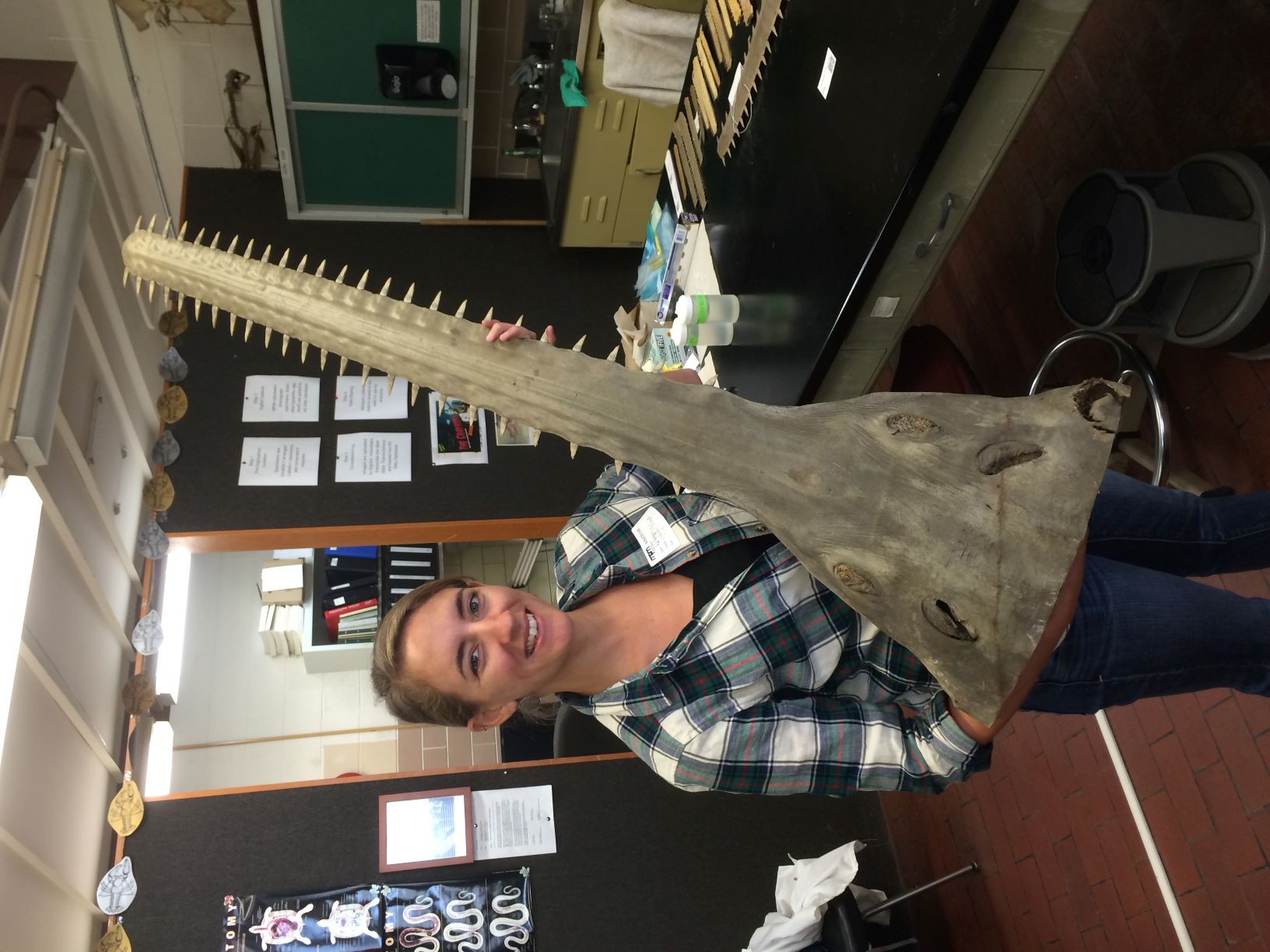
Allison Snider (January 2016 - December 2021)
Thesis: Molecular analysis of Seaside Sparrow (Ammospiza maritima) diet: methodological insights and ecological applications
National Academies of Science Gulf Research Program Science Policy Fellow
Gulf Coast Ecosystem Restoration Council
New Orleans, LA
allisonmsnider at gmail.com
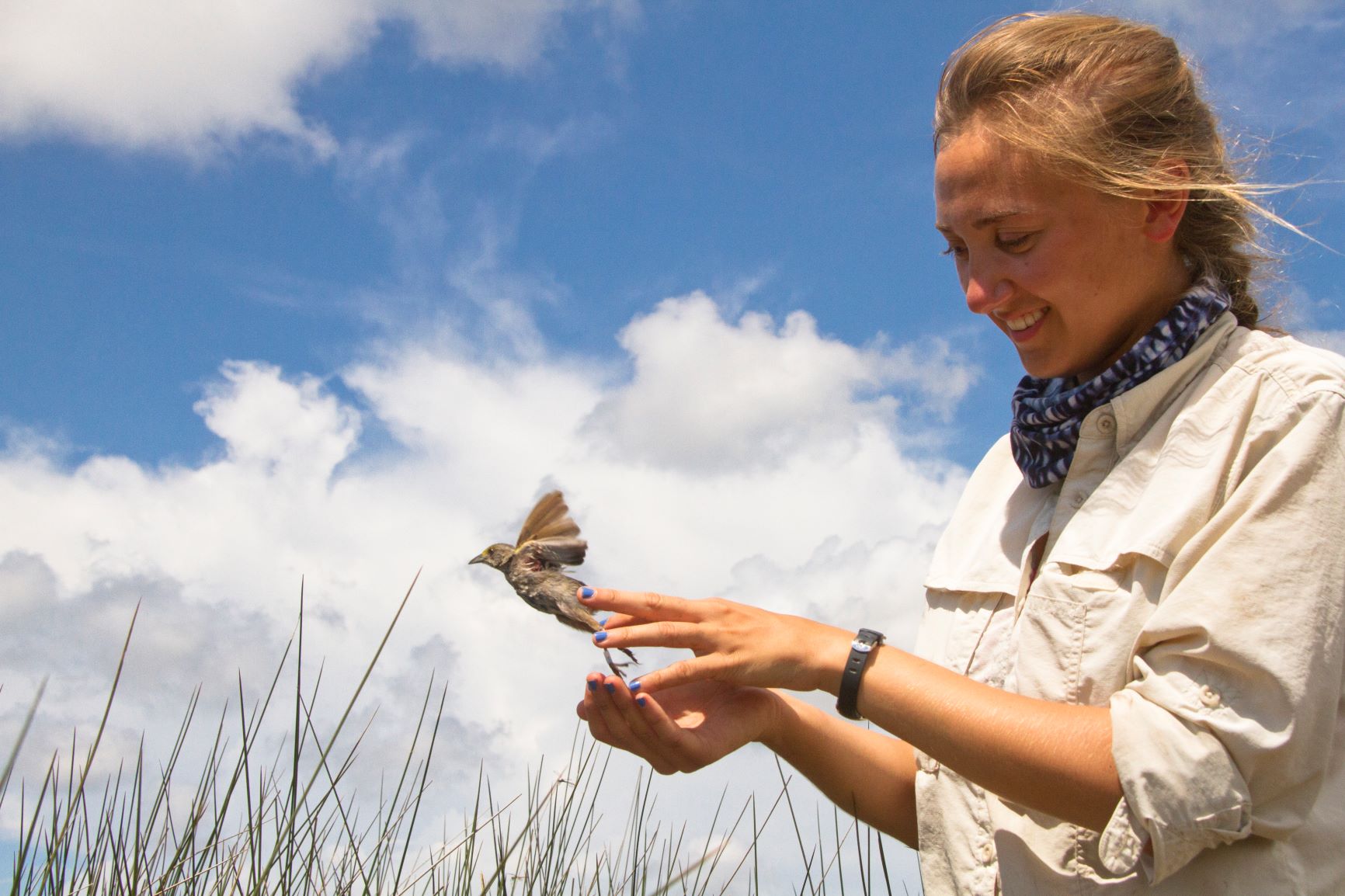
Dr. Jean Elbers (August 2011-December 2016)
Thesis: Immune gene variation and susceptibility to upper respiratory tract disease in gopher tortoises
Bioinformatician
Scientific Computing Institute of Science and Technology Austria
Klosterneuburg, Austria
jean.elbers at gmail.com
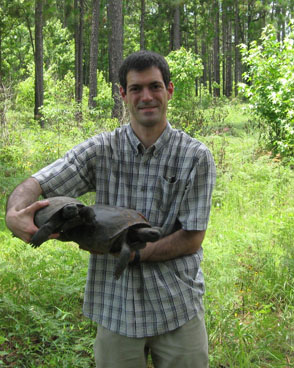
Dr. Kristin Brzeski (August 2010-December 2015)
Thesis: Effects of inbreeding on endangered red wolves (Canis rufus)
Assistant Professor
School of Forest Resources & Environmental Science
Michigan Technological University
Houghton, MI
kbrzeski at mtu.edu
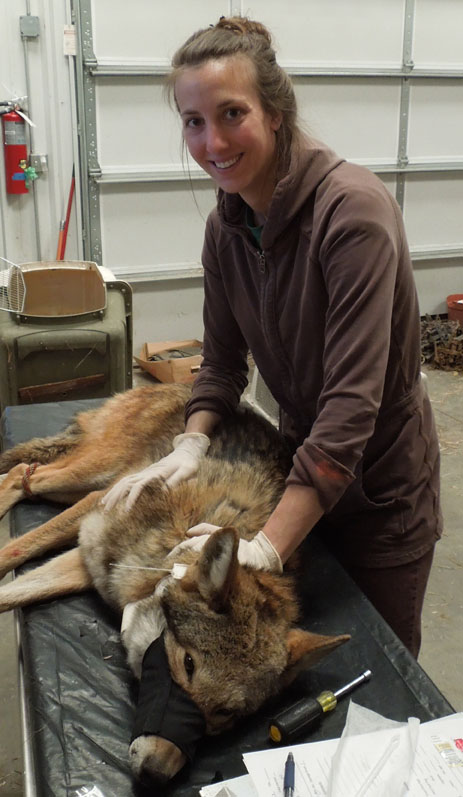
Former MS Students
Steven Tyler Williams (January 2018-December 2019)
Thesis: Immune gene diversity and population structure in the reticulated flatwoods salamanders
Biological Science Technician
Honey Bee Breeding, Genetics, Physiology Research Station
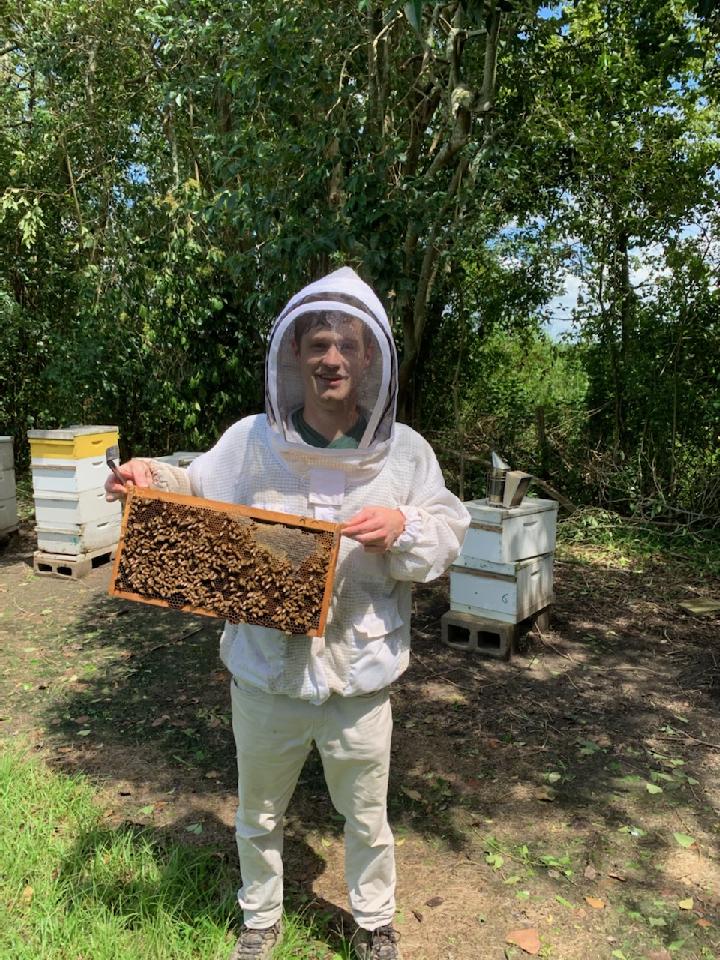
Robert Ford (January 2014-December 2015)
Thesis: Hybridization and population structure of western Gulf Coast Mottled Ducks
Michigan Department of Natural Resources
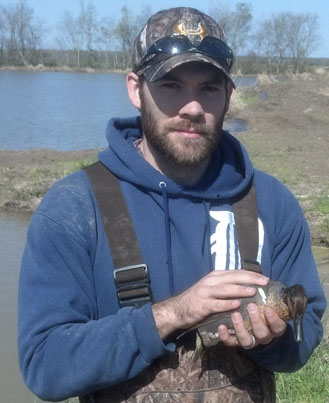
Blain Cerame (August 2010-December 2013)
Thesis: Bachman's Sparrow (Peucaea aestivalis) population structure across the southeastern USA
SWCA Environmental Consultants
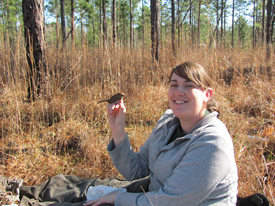
Former Postdoctoral Fellows
Dr. Andrea Bonisoli Alquati
Seaside Sparrow and Marsh Rice Rat Research 2015-2016
Assistant Professor
Department of Biological Sciences
California State Polytechnic University, Pomona
Pomona, CA
aalquati at cpp.edu

Dr. Christine Bergeon Burns
Seaside Sparrow and Marsh Rice Rat Research 2013-2014
Certified Genetic Counselor
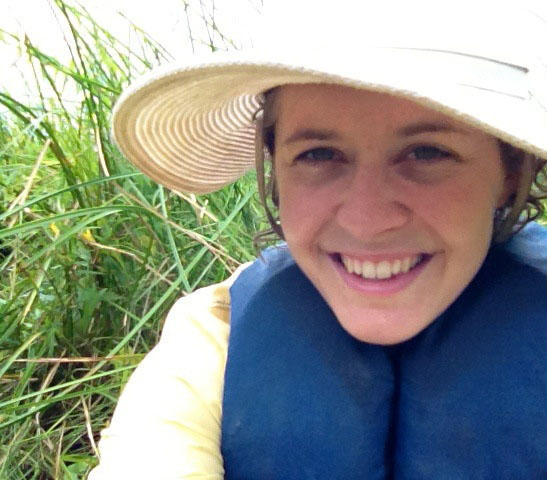
Dr. Stefan Woltmann
Seaside Sparrow and Marsh Rice Rat Research 2011-2012
Associate Professor
Department of Biology
Austin Peay State University
Clarksville, TN
woltmanns at apsu.edu
